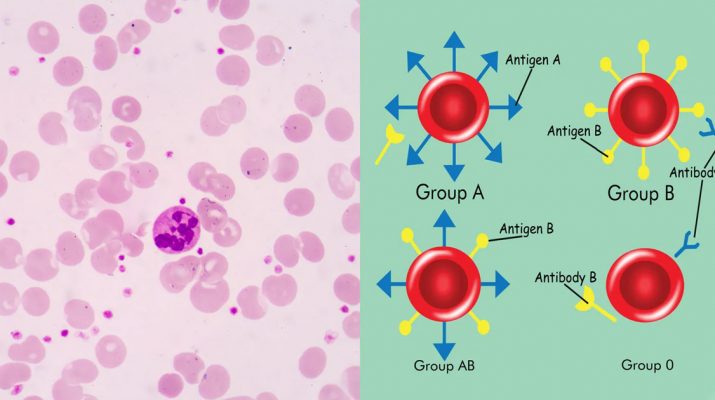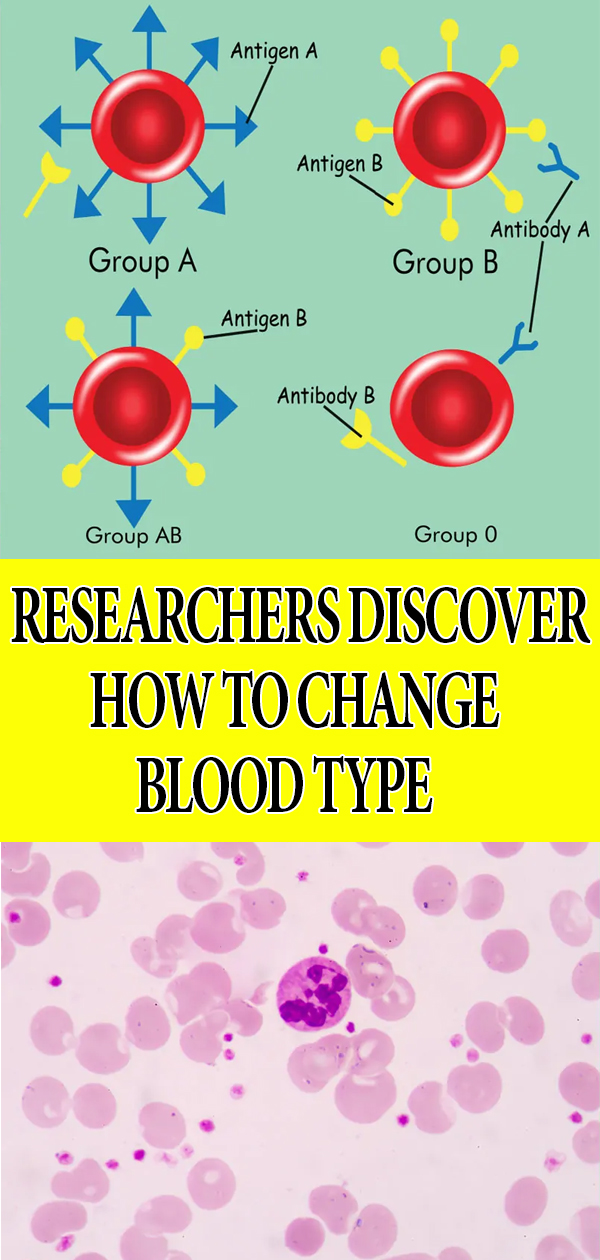Do you know your blood type? This grouping indicates what type of blood you can or can’t receive during a transfusion. It also indicates who can receive your blood if you ever choose to donate it.
Some people have an easy time finding donors, but that’s not the case for everyone. Some people have particularly rare blood types and have a lot of difficulties finding appropriate matches. In these cases, lives can be lost.
That’s why the results that show that blood types may be capable of being altered is so game-changing. This fact could, quite literally, change the world.
Researchers Discover How To Change Your Blood Type, Potentially Saving Millions Of Lives
1. Understanding How A Blood Type Works
It’s easy to imagine that all humans have the same blood, but this is far from the case. Variations in blood exist, providing us with four main blood types, each with two subsets. But what makes up a specific type?
The secret lies in antigens. Antigens are special substances or structures that are bound to and by antibodies. They typically rest on self surfaces. People with different blood types have different types of antigens.
When a contrasting antigen that someone does not have is introduced to their body, a strong and serious immune response is triggered. The body’s natural immunity begins to attack the foreign antigens, causing it to reject blood and even organ transfusions and donorship. As such, close matchups are crucial to ensuring a safe transfusion process.
The antigens type that you have is largely determined by genetics, meaning that your type is passed on from your parents. It goes like this:
- O type blood can be passed on if your parents have either A, B, or O type blood. You cannot have this blood type if one of your parents has AB blood.
- A type blood can be passed on if either one of your parents has that same type.
- B type blood can be passed on if either one of your parents has that same type.
- AB type blood can be passed on if your parents have a mix of A and B type blood. This means you will either need at least one parent with AB blood or both parents with A and B blood type, respectively.
2. Blood Type List
What kinds of blood types are there? Who can give and receive them? How rare are they, and is there anything unique about them? There are 8 variations in the world. Here’s a rundown on all of them!
· Type O+
O+ blood is the most common one in the world, making up around 38% of the United States and also of the planet. As such, it is commonly the most in-demand, and in times of shortage, it tends to run out quickly.
This blood variety does not have A or B antigens – only anti-A and anti-B antibodies. Contrary to popular belief, it is not actually the universal donor type; it can only be safely transfused to those who have positive blood types, such as O+, A+, B+, or AB+. Those with this type of blood also can only receive O+ or O- blood.
Because it is much more common than the actual universal donor type, O+ blood is often used in emergency situations when the blood type of the recipient is unknown. This is because the risk of a fatality without a transfusion outweighs the risks of a negative reaction to the blood.
· Type O-
O- blood is known as universal. This means it is used in a variety of emergency situations when a transfusion recipient’s blood type is not known by doctors. Unfortunately, only 2.55% of the world’s population has it, and only 7% of Americans. In times of crisis, the stock of this blood type runs out first.
Certain types of O- blood are cytomegalovirus (CMV) negative. CMV is a type of virus that humans (and apes) naturally host, and unfortunately, while it is harmless for most adults, it is deadly to babies. As such, those with CMV-negative universal blood are referred to as Heroes for Babies.
Unfortunately, those with O- blood can only receive that same type in blood transfusions. This means that although they are universal donors, they have a very limited usable transfusion pool.
· Type A+
Second, to O+, this blood type is one of the most common kinds. 27.42% of the world has it, and a whopping 34% of those in the US. This means it is also in relatively high demand.
A+ blood also has special platelets that are good for use for chemotherapy patients. However, they can only donate to those with A+ or AB+ blood, and they can only receive O or A blood. This is due to containing A antigens and anti-B antibodies.
· Type A-
People with A- blood make up 6% of the American population or about 1 in 16 people. That number drops to 1.99% worldwide. Those with this antigen type can donate blood for use by those with A and AB type blood of any variety, though they can only receive A- and O- in return.
· Type B+
B+ isn’t the rarest of antigens, but it’s not very common either. Only 9% of Americans have it, but that number leaps up outside of the country to just over 22% on an international level.
Those with this kind of blood can donate to people with B+ and AB+ blood, and they can receive from anyone with B or O type blood. They have B antigens and anti-A antibodies.
· Type B-
B- blood is very rare. Only 2% of Americans have it, and 1.11% of people internationally have it. They can easily transfuse this blood into others with any kind of AB or B blood, but they can only receive B- or O- blood, making the latter two varieties very crucial.
· Type Ab+
AB+ is the least common of all positive antigens. Only about 3% of Americans have it, with that percentage reaching 5.88% worldwide. The AB blood type is actually the newest one to be listed among these groupings.
You may know AB+ as the universal recipient type. Not only do they have no anti-B or anti-A antibodies, but they also have both of the antigens – A and B! This means that their rarity doesn’t put them at risk.
· Type Ab-
Fewer than 1% of all US citizens have AB blood, and the number shockingly dives to 0.36% worldwide. While they do not share their positive variety’s universal status, they aren’t only reliant on AB blood, which is a bonus!
Although AB- is the rarest blood type in the entire world, it is not too painfully difficult for someone with this type of blood to receive a transfusion because they can make use of any negative variation of blood.
3. Research Reveals How To Change Your Blood Type
A new study published in the Nature Microbiology journal in June 2019, titled “An enzymatic pathway in the human gut microbiome that converts A to universal O type blood”, indicates that it may be possible to change your blood type – or, specifically, the type of a sample of blood. (2)
The study was conducted by the following authors and researchers, in alphabetical order:
- Connor Morgan-Lang
- Haisle Moon
- Iren Constantinescu
- Jayachandran N. Kizhakkedathu
- Lyann Sim
- Peter Rahfeld (lead researcher)
- Stephen G. Withers
- Steven J. Hallam
How did these researchers find a way to change your blood type? It’s simple: with a special bacterial enzyme that the human body already contains! This bacteria is known as Flavonifractor plautii, and it is typically found in the gut.
The scientists separated this bacteria from stool samples of humans and worked on detecting which genes within it that can encode certain enzymes, allowing them to isolate certain A antigen components and remove them. This would allow the A antigen to be converted into the H antigen, which is the antigen in the O — the universal donor type.
Once the bacterial enzyme was placed in an A blood sample, the blood cells lost all their antigens and became O cells instead. Tests indicate that these new H antigens will not lead to an immune system attacks from the transfusion receiver, allowing it to effectively be used for a wider variety of people.
Right now, this experiment was done mainly in a petri dish, and it has not been tested on actual humans yet. However, this doesn’t change the fact that this is a big, game-changing finding, so we can look forward to the future with more positive thinking.
4. Applications And Benefits If Scientists Can Transform Antigens
It goes without saying that being able to alter A to O antigens will have countless positive implications. After all, the O antigen is a universal donor. Therefore, being able to transform A into O will have a significant effect on the whopping 117 million pints donated globally every year.
Without the correct blood type to transfuse, patients around the world are at risk of potential disease and death. O type blood is the first type to be reached for to save lives, and thus, the ability to convert a very common blood type to this universal donor type will have unmatched benefits all across the world.
This research is so groundbreaking precisely because it does something that many did not believe was possible before. Past studies have indicated that blood groups can change in patients who receive bone marrow transplants, but that information did not have the same positive possibilities that this new research has presented.
Final Thoughts On How To Change Your Blood Type, Potentially Saving Millions Of Lives
Across the globe, there are people with rare blood types who are desperately waiting for donors. These findings serve as the first steps to helping these people, so we’re looking to the future with lots of positive thinking.
If you are able to, do consider donating blood to your local blood bank or similar facility. No matter what your type is or how rare or common it may be, it can help save a life! Until science has advanced far enough to allow easy ways to change your antigens, these individuals need all the help that they can get.


